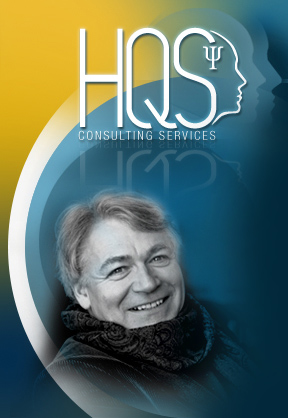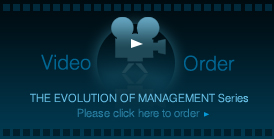video and audio series
 Managing Surprise
Managing Surprise  Developing
the Thinking Worker
Developing
the Thinking Worker  Creating a Thinking
Organization
Creating a Thinking
Organization  MANAGING
SURPRISE | 29 Minutes
MANAGING
SURPRISE | 29 Minutes 
The main theme of the first video is that we have misdefined the nature and impact of the change we are facing in our environment and we have as a result reacted with a whirlwind of less than effective responses to that change.
This video presents an evaluation of the nature of the environmental changes we are experiencing. In this evaluation we will discover that the very nature of change has altered, and that we are dealing with environmental change that is fundamentally different that it has ever been in terms of its pace, its predictability and its complexity. In the end we will find that we do not simply have to manage change but that we have to MANAGING SURPRISE.
Of critical importance is the reality that as the nature of change in our environment has altered so has the kind of problems it generates for us to manage. Only in understanding the altered nature of change can we begin to define the type of problems we have to manage. Armed with this understanding we will have a greater capacity to successfully Manage Surprise without misdirecting scarce resources. The key, as we will discover, to managing surprise is the development of THINKING WORKERS.
 DEVELOPING THE
THINKING WORKER | 24
Minutes
DEVELOPING THE
THINKING WORKER | 24
Minutes 
Change in the environment is only significant to us, as individuals and as organizations in as much as it creates opportunities, challenges, situations, or broadly speaking problems that we have to respond to. In this, the second video of the series, we will explore two main themes. The first theme will speak to the nature of the problems this new type of change is generating for us and the second theme will speak to the skills and mind set required to cope effectively with this new type of problem.
Without suggesting that most employees are not thinking individuals, it is clear that the daily activities of most employees in the traditional workplace have been driven by rules, regulations, policies and procedures. The traditional workplace did not expect much less give, employees the opportunity to be thinking workers. However, in the environment of the new workplace the activities required by employees to manage unprogrammable problems cannot be as readily prescribed. Employees will not only be required to be thinking individuals but also to have the opportunity to exercise that ability. In order to do so employees will have to have an understanding of the new nature of the problems they face and be skilled in the areas of critical and creative thinking.
In addition, they will have to be comfortable with risk management and be skilled with an experimental approach to problem solving. In the new workplace, while being a knowledgeable worker will be necessary, it will not be sufficient for effective function and success. Becoming Thinking Workers will be the necessary and sufficient prerequisite. The primary and most important task for every Thinking Worker will be to acquire the expertise and credibility to lead the evolution needed to create a THINKING ORGANIZATION!
 CREATING THE
THINKING ORGANIZATION | 28
Minutes
CREATING THE
THINKING ORGANIZATION | 28
Minutes 
The organizational processes and systems required to maximize the full contribution and commitment of all the intellectual assets of the organization in the current environment will require a substantial evolution from the status quo. That organizational evolution is the subject matter of the last video in the series.
It is clear that more often than not the rules, regulations, policies and procedures that prescribe the employees' activities are now serving to impede effective progress. Much of the knowledge required to improve the system is held by employees. Employees will have to judiciously press the system and that system will have to be amenable to responding.
This video will suggest how employees and management together can be party to driving the evolution of the system towards one which will ensure that work is carried out, and decisions are made based on knowledge, clarity of direction, and commitment to commonly held objectives. This evolution must be distinct from a revolution not by virtue of its speed but rather by virtue of its orderliness. This evolution must ensure that we respond to change in an effectively targeted and successful way. Furthermore, the system must evolve in such a manner that it permits employees to solve not only immediate problems but correct the process of management so as to ensure that future problems are managed more effectively. The results of this evolution must be characterized by a corporate process in which individuals have the skills and the latitude to think, as well as the willingness to accept the ensuing accountability. Employees will have to self-organize around the problems they face and that will require the development of latitude descriptions based on carefully determined criteria. This evolution must also result in a corporate environment that manages knowledge effectively and encourages but most importantly understands the process of experimentation.
The output of this type of organization, when populated by thinking workers, will be the result of thinking versus rote procedures. This type of organization will be a Thinking Organization




